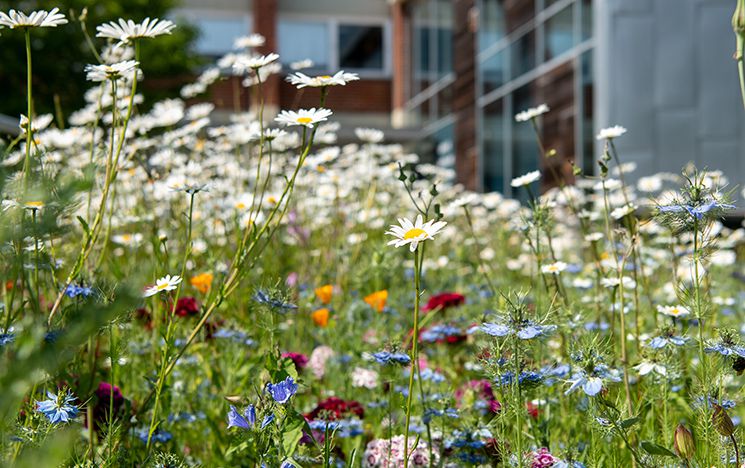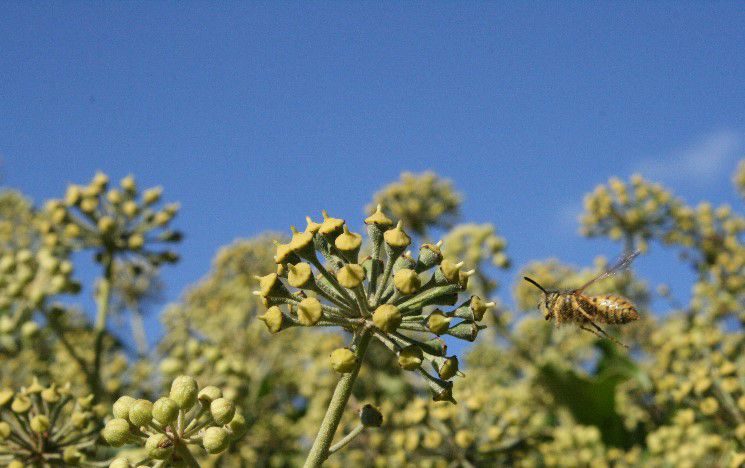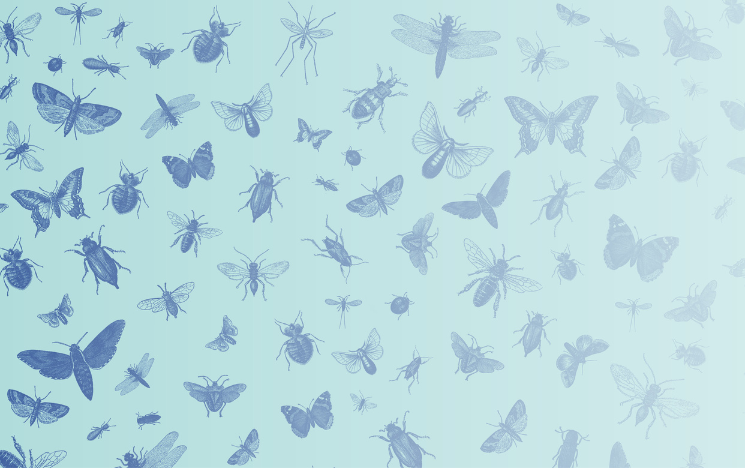Silent earth
Founder of the Bumblebee Conservation Trust and Professor of Biology at Sussex Dave Goulson is on a mission to avert the insect apocalypse. Here he explains why, and how.
Love them or loathe them, we need insects. Around 75% of the crops we grow rely on pollinators.”
I have been obsessed with insects my whole life. They are amazing and often beautiful, with fascinating, peculiar lives. I grew up in rural Shropshire and spent my childhood roaming the lanes and meadows in search of caterpillars, butterflies, grasshoppers and beetles. I eventually came to realise that the world would not function without these tiny creatures; they pollinate, control pests, recycle all sorts of organic material from dung to corpses and tree trunks to leaves and they keep the soil healthy. They also disperse seeds and provide food for many larger creatures, such as birds, bats, lizards, amphibians and fish.
It should, therefore, be of deep concern to us all that insects appear to be in massive decline. In Germany, flying insects have dropped by 76% in the past 26 years. In the UK, our more common butterfly populations have fallen by 46% since 1976, the rarer ones by 77%, despite great efforts by conservation organisations, such as Butterfly Conservation. Thirteen UK bee species have become extinct, and more look set to follow.
In the USA, the iconic monarch butterfly, famed for its annual migration between Mexico and Canada, has declined by more than 80% since the 1980s. As a child, I vividly remember my parents stopping the car on long summer journeys to scrub clear the windscreen, which quickly became crusted with splatted insect corpses as we drove along. Today, our windscreens are disturbingly clean. This has all happened within our lifetime. On our watch.
The causes of insect declines are many: habitat loss to intensive farming, housing and other developments; the ever-growing blizzard of pesticides used by farmers and gardeners; climate change; light pollution; impacts of invasive species, and more. Our tidy, pesticide infused world is largely hostile to the delicate balance of insect life.
It’s easy to feel helpless in the face of global environmental issues, but we can all get involved in halting and reversing insect declines. Most insects have not yet gone extinct, and they could recover quickly if we just give them some space to live and feed in peace.
If you are lucky enough to have a garden, take some simple steps to invite insects and other wildlife in (see Simple actions, big gains further down). Biologist and wildlife gardener Jennifer Owen spent 35 years obsessively cataloguing every plant and animal that she could find in her compact garden in urban Leicester, eventually recording no less than 2,673 different species, the majority of which were different types of insects.

Britain has about 22 million private gardens; the mind boggles to think how much life they could collectively support if they were all wildlife friendly. A single marjoram plant, perhaps in a pot on a balcony or roof terrace, will attract bees and hoverflies the moment it blooms.
Other options include joining national and local campaigns to fill our urban greenspaces with wildflowers, or campaigning to have your town or village declared pesticide-free. If every garden, park, cemetery, roundabout and road verge was filled with swathes of wildflowers, we could create a national network of wildlife rich habitat from Land’s End to John O’Groats.
And then there’s farmland, which covers 70% of the UK. It is my view that the move towards ever-more intensive farming is unsustainable. It causes terrible damage to our wildlife and soils, pollutes streams and rivers with fertilisers and pesticides, and significantly contributes to greenhouse gas emissions. Buying and eating local, seasonal, organic produce and reducing meat consumption is an effective way to reduce your own impact and support more sustainable farming practices. Better still, grow what food you can in your garden or an allotment.
Love them or loathe them, we need insects. Around 75% of the crops we grow rely on pollinators. We must learn to live in harmony with nature, not try to rule and control it. Our survival, and the glorious pageant of life with which we share our planet, depends upon it.
Simple actions, big gains
- Dig a pond (even a tiny one is good)
- Turn part of your garden lawn into a mini meadow
- Live the good life and grow your own fruit and veg
- Avoid using pesticides
- Make or buy a bee hotel
- Buy local, seasonal, organic food
- Learn to love weeds, such as dandelions and chicory
- Grow some pollinator-friendly plants, such as wild marjoram, viper’s bugloss, common fennel and ivy
- Campaign for your town to become pesticide free - for advice go to the Pesticide Action Network UK website.
To find out more, read Dave’s book Silent Earth: Averting the Insect Apocalypse, published by Jonathan Cape, and visit his YouTube site.

Professor Dave Goulson is Professor of Biology (Evolution, Behaviour and Environment) in the School of Life Sciences, and one of five University of Sussex academics named on the Highly Cited Researchers 2022 list.
